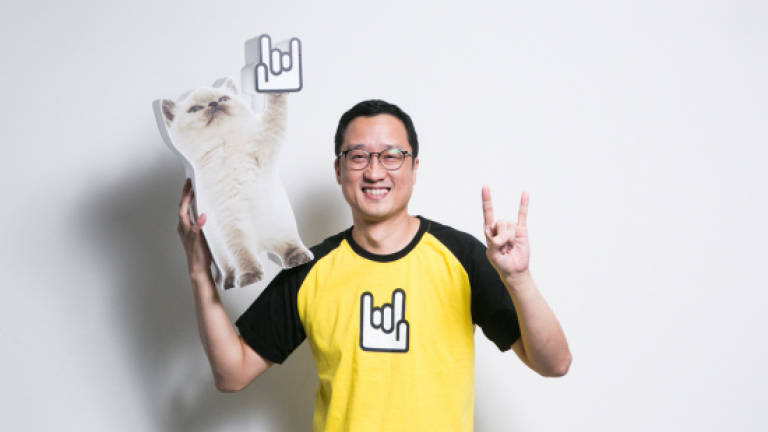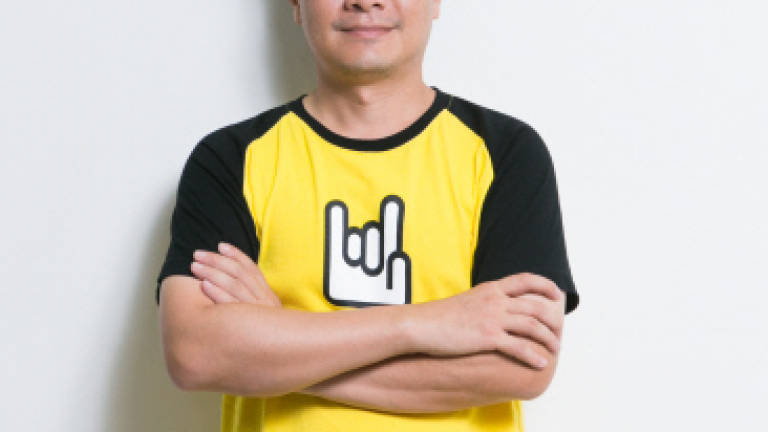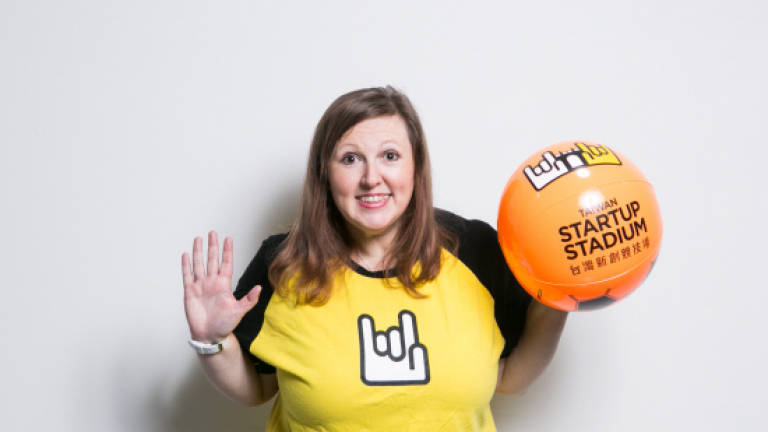Rethinking company culture



There are probably five things you didn’t know about Taiwan Startup Stadium – they are small but diverse with just 10 full-time staff from various backgrounds; they love the “F” word, flexibility that is; they love to grow through challenges outside their comfort zones; their Wednesdays are optional so you might not find them in the office on that day; and lastly, they know how to chill as every Friday at 4.30pm is Happy Hour.
So what can we learn about future workplaces and company culture from them? First of all, you need to get to know them. Taiwan Startup Stadium, or TSS for short, is a hub that coaches Taiwan start-ups to go global and rock the world through intensive programmes, strong leadership and a broad network of global partners.
TSS co-founder and general manager, Holly Harrington was among five women who made the team that launched the company in 2015. At that time, she felt there were a number of things she could contribute to the work culture as a non-Taiwanese leading a diverse group of people comprising Taiwanese and expats.
“As an American, I come from a culture that sees open communication and healthy dissent as essential to making good decisions, which is quite different from traditional top-down management in Taiwan,” said Holly.
TSS’ work culture encompasses work-life balance, an aspect of work that is quite rare in Taiwan. The company doesn’t want to instil a clock-in, clock-out work environment where one just puts in work hours to collect a salary. The company also doesn’t want to see employees working to the point of burnout.
“One of the ways we address this is through our Remote Wednesdays, which we instituted last year. Wednesdays are set aside so that everyone has at least one day a week to work outside the office and focus on projects or research without the interruptions of meetings or unexpected visitors. This way there is less pressure to work late finishing projects, given a whole day is reserved for this purpose,” Holly shared.
However, nothing is ever an overnight success. The TSS team were faced with two main challenges while building their work culture – cultural differences and age or experience differences.
“Western leadership favours independent thinking, discussion and even, disagreement, since dissent brings up issues that can potentially be addressed. In Eastern countries like Taiwan, respect for authority and keeping the peace are of higher importance.
“Since our work culture is more Western but our team is majority Taiwanese, getting people to feel comfortable speaking up and dissenting in a constructive way is an ongoing challenge.
“Moreover, the age of our current team is around 30, which is great for connecting with our start-up community but this also means a narrower scope of work experience among many colleagues and less confidence and intuition that comes from having worked with many kinds of people before.
“Overcoming these challenges have been difficult but acknowledging the challenges directly, talking about them as a team, and creating clear expectations for communication have been helpful,” Holly informed.
Besides these, another important aspect of the TSS work culture is that their main language is English – internally as well as in their start-up programmes.
“Our team works with mentors, investors, media and corporates from dozens of countries, and English is the common language of business.
“For our staff members whose native language is not English, this is an extra perk of working at TSS, since it’s impossible to work with us without improving their English communication skills.
“Any start-up, corporate or ecosystem building organisation that wants to have a more global impact would really benefit from creating an English-first work environment. It may seem a little less efficient at first, but it’s hard to overstate the long-term benefits of having a team proficient in English,” said Holly.
TSS will be taking Taiwan start-ups to several cities in the US, Thailand and Hong Kong via their #TaiwanRocks Demo Day. They will also be participating in exhibitions like Collision in New Orleans, Techsauce in Bangkok and RISE in Hong Kong.
This fall, they will be presenting their “Term Sheet Bootcamp” programme, taking it on tour throughout the Asia Pacific to share investment insights with early stage start-ups who are raising their first funds.
“Meanwhile, we are continuing to connect our member start-ups with mentors, investors and corporate partners to help them grow. We are always encouraging start-ups from other countries to consider basing themselves in Taiwan,” said Holly.
Going global
Having reached out to young tech entrepreneurs across Asia through educational workshops, TSS co-founder and Industry Development Lead, Leroy Yau said his first impression of TSS is probably the most common across the globe – energetic, smart, daring and young.
“Besides imparting technical components, for example, key clauses in term sheets or methodologies such as lean start-up and design thinking, we try to instil the right mindset: action oriented, willingness to try new things, ability to listen and learn, building the right relationships and most of all, there is never a ‘standard answer’ – every entrepreneurship journey is different. And the biggest reason why I am involved in this industry is the opportunity for me to learn from them,” Yau said.
Meanwhile, TSS VP of Startup Development, Jeffrey Ling said although not all opportunities are sexy, as some start-up topics such as artificial intelligence and blockchain, the important thing is to ask yourself if the chosen topic is something worth doing for the next three to five years (this is how long it will usually take to arrive at some meaningful outcomes) and if it has enormous unrealised market potential (unless it is for a charitable cause).
“Do not be afraid of talking to a number of seasoned entrepreneurs and investors before you embark on the new venture. It will save you from wasting years of fruitless efforts, not to mention they may be able to help in some way,” said Ling, who was born and raised in Sibu, Sarawak before migrating to New Zealand where he worked for nearly 13 years.
Ling believes Malaysians should experience less hurdles when it comes to going onto the global stage. Although the Malaysian start-up scene is not as vibrant as the one in Taiwan yet, this does not mean the scene in Taiwan is mature, especially when compared to counterparts in Silicon Valley, Beijing and Seoul.
“This means room for improvement and therefore a lot of really exciting stuff are still awaiting to be done in both Taiwan and Malaysia. Taiwan start-ups are very interested in learning about the Malaysian market, and a few ties have already been established for both sides, such as the one between Taiwan and Selangor State Government.
“I hope more will be forthcoming in the near future, and I will be really ecstatic if I can help in effecting some of the ties. We hope that we will eventually be able to create the opportunities for these start-ups to do so, and vice versa for the Malaysian start-ups,” Ling said.